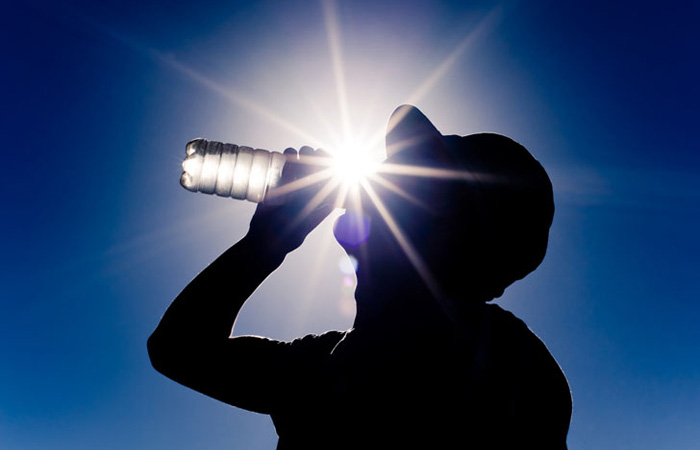Manitoba public health officials are warning people of an extended period of heat forecast for Manitoba, with many areas of the province already affected. The province are advising the public to be prepared and plan for the heat.
Public health orders allow for municipalities to repurpose facilities such as libraries and community centres as cooling centres for vulnerable people who may not otherwise have means to cool off during heat waves. Outdoor pools, splash pads and wading pools are operational at this time.
People attending these facilities must be reasonably able to maintain a separation of at least two metres from other members of the public. It is expected that all facilities will have required supervision and efforts will be made to ensure the public follows proper physical distancing and public health protocols. Provincially designated enforcement officers will be monitoring and recommending any required adjustments.
In addition, municipalities are encouraged to consider providing services to address the health effects of the heat wave including:
- distribution of bottled drinking water;
- providing of shade tents in priority areas;
- operation of transit buses as mobile cooling centres, where applicable; and
- allowing drop-in and overnight shelters to offer expanded daytime hours during periods of extreme heat.
Everyone is at risk for the effects of heat. However, during a period of prolonged heat, older adults, people with chronic illness and people living alone have a particularly high risk for heat illness, especially if they are living in an urban area or do not have air conditioning. Others at greater health risks to heat include infants and young children, and people who work or exercise in the heat.
Manitobans are encouraged to check in regularly with vulnerable or socially isolated community members, friends and family. Contact people by phone where possible to reduce face-to-face interactions, which will help control the spread of COVID-19.
Never leave people or pets alone in a parked vehicle or direct sunlight.
Certain substances, including amphetamines, MDMA (ecstasy), cocaine, alcohol and cannabis, can alter mental status as well as increase the risk of over-heating. Some medications can also increase your risk, so it is important to ask your doctor or pharmacist whether the medication you are taking affects your ability to cope with heat.
If you have many of the following symptoms, your body may be overheating and at risk of heat illness or heat stroke:
- headache;
- red, hot and dry skin;
- dizziness;
- confusion;
- nausea;
- rapid weak pulse; and
- a complete or partial loss of consciousness.
The longer a person’s body temperature is above 40 C (105 F), the greater the likelihood of permanent effects or death. If these symptoms occur, immediately move to a cool place and drink water.
Emergency medical care may be needed depending on the severity of symptoms. If someone has a high body temperature, is unconscious or is confused, call for help. While waiting, cool the person right away by moving them to a cool place, apply cold water to large areas of the skin or clothing and fan the person as much as possible.
Heat illnesses are preventable. The health effects of heat can be reduced by:
- drinking plenty of liquids, especially water, before you feel thirsty;
- wearing loose-fitting, light-coloured clothing and a wide-brimmed hat;
- planning outdoor activities during cooler times of the day;
- limiting alcohol consumption;
- avoiding sun exposure and considering cancelling or rescheduling outdoor activities;
- going to a cool place such as a mall, community centre, public library or place of worship, after checking the hours these sites are open under COVID-19 restrictions;
- taking a cool shower or bath; and
- blocking sun out by closing awnings, curtains or blinds during the day.
For more information on heat and health, call Health Links-Info Santé at 204-788-8200 or (toll-free) 1-888-315-9257.



